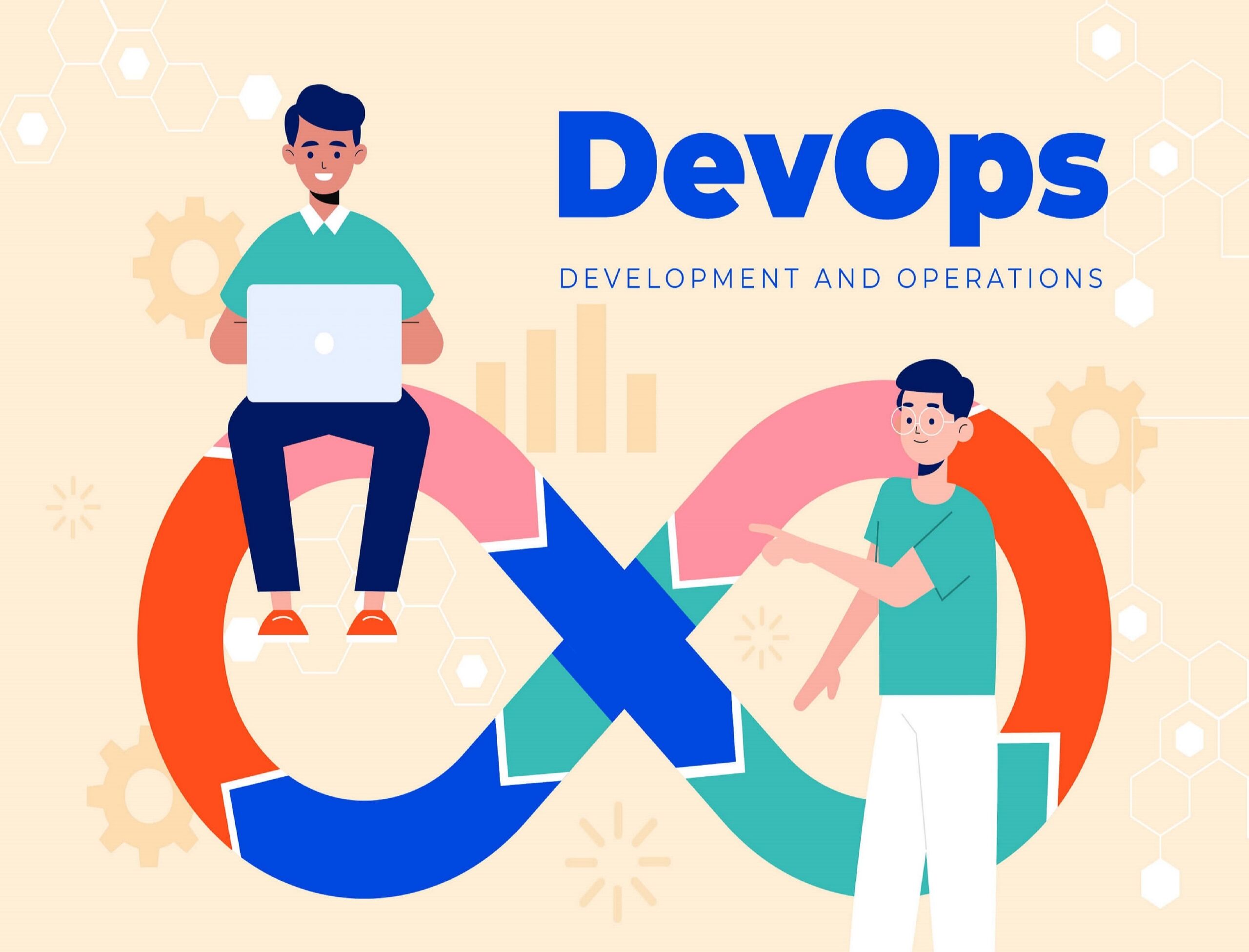

May 18, 2023
It’s also about automation, which enables changes to your codebase (or any other area of your development) to be automatically duplicated as quickly as possible across all platforms with no human involvement. However, effective implementation of DevOps requires a solid understanding of the technologies and tools that support it. In this blog, we will explore the key technologies essential for anyone looking to succeed in DevOps software development services.
Here are some of the key technologies and tools that are commonly used in DevOps:
Containerization is a way to package up applications and their dependencies into containers. Containers are then run on a host machine, which means they can be lightweight, portable, and scalable as well as faster than virtual machines. They’re also more secure than virtual machines because you don’t need to worry about the operating system inside of them being compromised (which could lead to your data being stolen).
Two of the most widely utilized containerization technologies in DevOps are Docker and Kubernetes.
Developers can bundle and distribute software as portable, lightweight containers using the open-source Docker framework. Developers can build, test, and deploy apps in a containerized environment using Docker, which ensures consistency between development, staging, and production environments.
Using the open-source platform Kubernetes, the deployment, scaling, and management of containerized applications are completely automated. Developers can easily manage containers at scale using Kubernetes, guaranteeing the high availability and robustness of their applications. For operating complex containerized applications in real-world environments, Kubernetes features like automatic rollouts and rollbacks, self-healing, and horizontal scalability are essential.
To be proficient in DevOps, it’s essential to have a good understanding of Docker and Kubernetes, as they play a key role in building, deploying, and managing containerized applications. Knowing how to create Docker images, manage containers, and deploy applications using Kubernetes is essential for anyone looking to succeed in the world of DevOps.
Continuous Integration (CI) is a software development practice that integrates changes to source code into a shared repository. CI enables you to build, test and deploy your application more frequently than if it were manually built every time you made a change. This helps improve quality by identifying problems before they affect production systems or users’ experience.
Jenkins, GitLab CI, and CircleCI are some of the most popular tools used for CI/CD in DevOps.
A huge number of plugins are available for Jenkins, an open-source automation server, to help with developing, delivering, and automating any project. It is a popular solution for the continuous integration and delivery of applications, and DevOps teams will find its extensibility to be highly useful.
The online Git repository management GitLab includes a framework for continuous integration and delivery (CI) called GitLab CI. It offers a complete DevOps solution, connects with Kubernetes, and has a built-in container registry, making it the ideal choice for companies wishing to increase the speed and effectiveness of their DevOps software development services and delivery operations.
CircleCI, a cloud-based CI/CD technology, enables quick and flexible testing and deployment. With CircleCI, developers can quickly set up automated pipelines and workflows, relieving them of the burden of deployment and testing so they can focus on writing code.
These tools are critical for building, testing, and deploying software in a fast, reliable, and automated manner, ensuring that the software delivery process is efficient and effective.

Configuration management is the process of recording, generating and maintaining software configuration files. Configuration management tools enable you to store your IT assets in a central location (known as the inventory), which makes it easy for developers, system administrators and other members of your team to access them when needed.
Configuration management systems can be used for many purposes:
Ansible, Puppet, and Chef are some of the most popular Configuration Management tools used in DevOps.
Ansible is an open-source program that offers straightforward infrastructure management automation. It is simple to learn and use because it defines tasks using a basic YAML-based language. Ansible makes it simple to automate processes like orchestration, configuration management, and application deployment.
Another well-liked configuration management tool, Puppet, offers a declarative language for specifying system configurations. It provides a comprehensive selection of integrated resources and modules that make managing infrastructure and application setups simple. Puppet enables automated server, application, and database deployment, configuration, and management.
Chef is a robust Configuration Management tool that defines configurations in a language based on Ruby. It provides a full range of integrated resources and modules that make managing infrastructure and application setups simple. Chef enables automated server, application, and database provisioning, setup, and management.
To be proficient in DevOps software development services, it’s important to have a good understanding of Configuration Management tools. These tools enable developers to automate the deployment and management of infrastructure, making it easier to ensure consistency and reduce errors.
Cloud Computing is another critical technology that DevOps professionals should be familiar with. Understanding cloud platforms like Amazon Web Services (AWS), Microsoft Azure, and Google Cloud Platform (GCP) has become crucial as more organisations migrate their applications to the cloud. Understanding cloud computing can assist DevOps teams enhance their development, testing, and deployment procedures because many DevOps practises are cloud-based.
The most well-known cloud platform, AWS, provides a variety of computing, storage, and database management services. DevOps teams trying to create and maintain scalable cloud applications will find AWS to be an excellent option because it offers tools for automation, monitoring, and security.
Another well-known cloud computing platform, Microsoft Azure offers a number of computing, storage, and database management services. Azure is a fantastic option for DevOps teams who favour Microsoft technology since it provides tools for deployment, monitoring, and security.
Google Cloud Platform (GCP) is a cloud platform that provides a range of services for computing, storage, and database management. For DevOps teams who favor open-source technology, GCP is a wonderful option because it provides tools for automation, monitoring, and security.
For DevOps teams to build safe, scalable, and reliable applications, knowledge of cloud platforms is now essential as the demand for deploying and managing applications on the cloud increases.
DevOps professionals need to be knowledgeable with a critical collection of technologies called monitoring and logging tools. These tools are used to examine and fix any issues as well as to keep track of how well infrastructure and applications are working and performing. Some of the most popular monitoring and logging tools used in DevOps include Prometheus, Grafana, and the ELK stack (Elasticsearch, Logstash, and Kibana).
A monitoring and alerting toolkit known as Prometheus collects data from targets in real-time, stores them and then generates visualizations and alarms based on those metrics. Prometheus may be used to monitor anything, from simple apps to massive, distributed systems, and it is very scalable.
Grafana is an open-source visualization and analytics platform that can be used with Prometheus or other monitoring systems. Grafana allows users to create custom dashboards and visualizations based on data from various sources, making it easy to monitor the health and performance of applications and infrastructure.
The ELK stack is a popular set of open-source tools used for log management and analysis. Elasticsearch is used to store and index logs, Logstash is used to collect, filter, and transform logs, and Kibana is used to visualize and analyze log data.
DevOps professionals should be familiar with monitoring and logging technologies as they allow teams to proactively monitor applications and infrastructure, solve problems promptly, and continuously enhance the performance and dependability of their systems.
Along with these technologies, it’s also essential to comprehend programming languages like Python, Bash, and Ruby as well as Agile development processes, Test-Driven Development (TDD), and Infrastructure as Code (IaC) practices.
To sum up, DevOps software development services are vital and need a variety of technologies and tools to be effective. To create and maintain scalable, dependable, and secure systems, DevOps developers need to be knowledgeable in a number of technologies, including containerization, cloud computing, monitoring, and logging.
Xeven Solutions (Pvt)Ltd. provides the best DevOps consulting services in the USA, helping organizations adopt DevOps practices and technologies to accelerate software delivery and improve the quality of their applications. With a staff of knowledgeable DevOps specialists, we are committed to assisting clients in achieving their DevOps objectives and maintaining their competitiveness in the quickly evolving technology landscape of today.